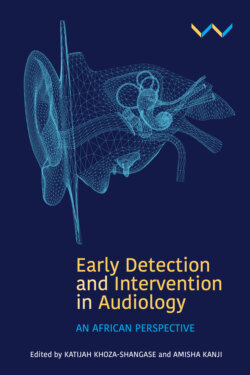Читать книгу Early Detection and Intervention in Audiology - Группа авторов - Страница 18
На сайте Литреса книга снята с продажи.
Preventative care in the context of EHDI
ОглавлениеPreventative care comprises primary, secondary and tertiary prevention. Primary prevention refers to the elimination of exposure to certain conditions that may result in a specific health outcome. In the context of EHDI, primary prevention of newborn or infant hearing impairment can be achieved through addressing maternal exposure to environmental factors and other diseases or health conditions that may increase the risk of the unborn child developing a hearing impairment (Alvarez, 2008).
Secondary prevention refers to the use of measures that may lead to earlier diagnosis and treatment of conditions. In the context of EHDI, these initiatives may include early identification of hearing impairment through the provision of NHS prior to hospital discharge (Alvarez, 2008). Tertiary prevention refers to strategies that decrease the difficulties associated with disability. In terms of EHDI, this may relate to early intervention services (such as fitting of amplification, aural habilitation and culturally and linguistically appropriate communication interventions) that are provided to newborns and infants with confirmed hearing impairment, as well as intervention services for their families (Alvarez, 2008).
For EHDI programmes to yield positive outcomes, it is important that all three levels of prevention, particularly primary and secondary, are carefully considered and incorporated within the principles of early detection of hearing impairment.
